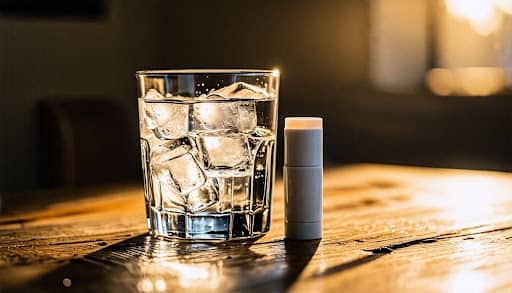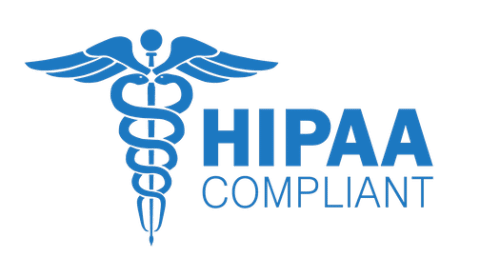Dealing with cold sores can be both painful and frustrating. These small blisters, often called fever blisters, come from the herpes simplex virus (HSV). This article explains what causes them, how to identify symptoms, and steps you can take to treat and prevent outbreaks.
Read on for clear advice.
Key Takeaways
- Cold sores are caused by the herpes simplex virus (HSV), specifically HSV-1, and can be easily spread through close contact.
- Symptoms of cold sores include tingling, burning sensations before blisters appear. These fluid-filled blisters eventually scab over and heal in about two weeks.
- Medications like acyclovir, famciclovir, and valacyclovir can reduce the severity and duration of outbreaks. Over-the-counter treatments and natural remedies like kanuka honey may also help.
- Preventing cold sores involves using lip balm with SPF to protect against sun exposure, managing stress, practicing good hygiene, and not sharing personal items.
- To protect others from infection, avoid kissing or touching if you have cold sores. Keep personal items like towels separate to prevent spreading the virus.
What are Cold Sores?
Cold sores are small blisters that form on the lips or around the mouth. They result from an infection with the herpes simplex virus (HSV).
Definition
Cold sores, also known as fever blisters or herpes simplex labialis, are tiny and painful blisters caused by the herpes simplex virus (HSV). Up to 90% of people globally have at least one form of HSV.
Exposure typically occurs during childhood, with many individuals catching HSV-1 by age five. Once contracted, the virus stays in the body for life.
These sores are highly contagious until they scab over completely. The infection manifests as painful blisters around the lips and mouth but can spread to other areas such as genital regions if there is direct contact.
Symptoms
Tingling, burning, or itching sensations signal the onset of a cold sore outbreak. Soon after, blisters filled with fluid appear. These blisters can rupture and leak before forming scabs that eventually fall off.
The first-time infections might also bring additional symptoms such as sore throat, headache, upset stomach, muscle aches, and swollen lymph nodes.
Cold sores often cause painful gums and discomfort around the affected area. Symptoms like these suggest an active herpes simplex virus (HSV) infection taking hold. As the cold sore completely heals over approximately two weeks, it’s vital to monitor any severe side effects to manage one’s health better during future outbreaks.
Causes
The herpes simplex virus type 1 (HSV-1) primarily causes cold sores. This virus spreads easily through close personal contact like kissing or sharing utensils, razors, and towels. HSV-2, although usually linked to genital herpes, can also cause cold sores but is less common in this context.
Various triggers often activate the dormant virus inside your body. Stress, fever, colds, allergies, fatigue, sunburns, dental work procedures such as teeth cleaning or extractions and menstruation can all prompt a cold sore outbreak.
A weakened immune system makes you more susceptible to these flare-ups too.
Contact MyInstantMD for Online Cold Sore Treatment
MyInstantMD provides convenient online treatment for cold sores, making it easy to manage outbreaks from home. You can access prescription antiviral medicine and creams that speed up healing and reduce symptoms.
Skip the hassle of appointments and treat it from the comfort of your home with MyInstantMD. Get expert care fast—contact us today!
Risk Factors and Complications
Certain factors can increase the risk of developing cold sores, such as stress or a weakened immune system.
Factors that increase risk
Certain behaviors elevate the likelihood of developing cold sores. Thumb sucking and nail biting in children with an orolabial herpes simplex virus HSV-1 infection increase their risk for herpetic whitlow.
Kissing or sharing personal items like utensils can quickly spread the herpes virus, making almost everyone at risk for cold sores.
Newborns are particularly vulnerable due to their underdeveloped immune systems. This makes them more prone to complications from cold sores. Most adults already carry the virus that causes cold sores, even if they have never shown symptoms.
Therefore, they can unknowingly spread it through close contact.
Potential complications
Cold sores can lead to infections in other body parts. Herpes whitlow, for example, affects the fingers and can be particularly painful. Genital warts or ulcers might develop if the virus spreads through self-inoculation.
In rare cases, complications like eczema herpeticum or HSV keratitis occur, causing serious skin and eye conditions. Severe inflammation may affect the brain or spinal cord. These conditions are life-threatening for people with weakened immune systems who should treat cold sores promptly.
Treatment Options
Medications can ease the pain and speed up recovery from cold sores.
Medications
Antiviral medicines like acyclovir (Zovirax), famciclovir (Famvir), and valacyclovir (Valtrex) effectively treat cold sores. These medications can reduce the severity and duration of outbreaks.
For individuals who experience frequent recurrences, long-term use of oral antiviral agents such as acyclovir or valacyclovir has been shown to decrease the recurrence rate of HSL.
Prescription antiviral medications are generally taken at the first sign of a cold sore appearing, often in pill form. Some patients may receive topical creams to apply directly onto cold sore patches.
These treatments help to manage symptoms and speed up healing time.
Complementary treatments
Kanuka honey and glycerine cream can reduce inflammation when applied to cold sores. Mixing 90% kanuka honey with 10% glycerine creates an effective anti-inflammatory treatment for herpes labialis.
Zinc sulfate suspension at a concentration of 0.5% also helps treat symptoms by reducing the duration and severity of outbreaks.
Honey alone has antimicrobial properties that aid in healing cold sores faster. Over-the-counter topical creams like Abreva, which contains docosanol, work well by blocking the virus from entering cells.
Photodynamic therapy is another option where light activates a drug applied to the sore, effectively treating it with minimal side effects.
Self-care measures
Use a cold, damp compress to soothe your cold sore. This simple method can reduce swelling and redness. Over-the-counter pain medicines like ibuprofen or acetaminophen help manage discomfort.
Speed up the healing process by applying antiviral ointments, creams, patches, or gels directly to the affected area. Ensure you keep the infected area clean and avoid picking at it to prevent further irritation or infection.
Prevention
Regularly wash your hands and avoid touching your face. Use lip balm with SPF to guard against sun exposure, which can trigger cold sores.
Tips for avoiding cold sores
Use sunscreen on your lips to prevent cold sores. The sun’s UV rays can trigger an outbreak, so a lip balm with SPF is essential. Apply it liberally whenever you go outside.
Manage stress and maintain a healthy lifestyle. Stress weakens the immune system, making it easier for cold sores to appear. Practice relaxation techniques like yoga or meditation regularly.
Practice good hygiene by washing your hands often and avoid sharing items like utensils, towels, and lip balm. This reduces the risk of spreading the herpes simplex virus that causes cold sores.
Take antiviral medicine consistently if prescribed by your doctor. Regular use can significantly reduce the chance of an outbreak.
How to protect others from infection
Keep drinking glasses and eating utensils separate from those used by others. This prevents the virus from spreading through shared items. Avoid close contact, like kissing or touching, especially if cold sores are present.
Washcloths and towels should also be kept separate to reduce the risk of spreading infection. Use antiviral tablets for preventive treatment if you frequently suffer from cold sores.
Regular kidney check-ups are necessary for people with kidney failure taking lower doses of medication.
Conclusion
Cold sores can cause discomfort and are easily spread. Understanding their causes, symptoms, treatment options, and prevention methods is crucial for managing them effectively. Seek medical advice if you’re uncertain about your symptoms or need guidance on treatments.
FAQs
1. What causes cold sores?
Cold sores are caused by the herpes simplex virus (HSV). The virus usually spreads through close contact like kissing.
2. How do I know if a cold sore appears?
A cold sore appears as a small blister on or around your lips. It may feel itchy or tingly before it shows up.
3. Can canker sores and cold sores be treated the same way?
No, canker sores are different from cold sores and need different treatments. Cold sores respond well to antiviral creams while canker sores often need other remedies.
4. How can I prevent cold sores?
To prevent cold sores, avoid close contact with infected people, don’t share personal items, and keep your immune system strong by staying healthy.
References
- https://my.clevelandclinic.org/health/diseases/21136-cold-sores
- https://www.mayoclinic.org/diseases-conditions/cold-sore/symptoms-causes/syc-20371017
- https://www.ncbi.nlm.nih.gov/books/NBK525782/ (2022-03-23)
- https://www.ncbi.nlm.nih.gov/books/NBK482197/
- https://www.webmd.com/skin-problems-and-treatments/understanding-cold-sores-basics (2023-05-10)
- https://www.webmd.com/skin-problems-and-treatments/understanding-cold-sores-treatment (2023-05-16)
- https://www.mayoclinic.org/diseases-conditions/cold-sore/diagnosis-treatment/drc-20371023
- https://www.ncbi.nlm.nih.gov/pmc/articles/PMC9717743/
- https://www.health.com/cold-sore-treatment-7555500
- https://www.ncbi.nlm.nih.gov/pmc/articles/PMC6461191/
- https://www.health.harvard.edu/newsletter_article/preventing-cold-sores
- https://www.ncbi.nlm.nih.gov/books/NBK525765/ (2022-03-23)
- https://kidshealth.org/en/teens/cold-sores.html




